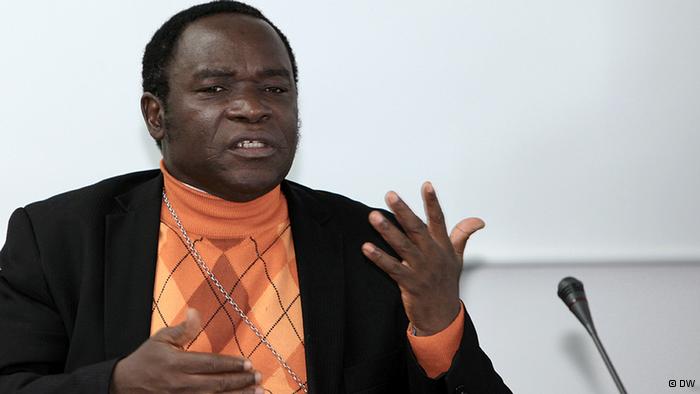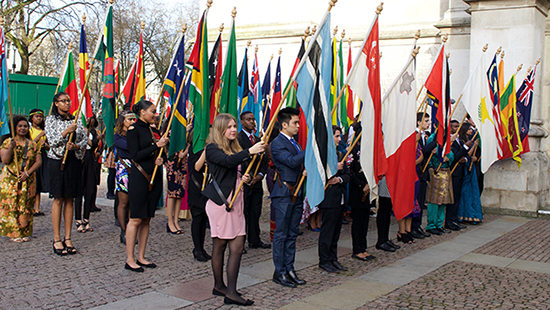By FRANCIS DAMINA –
Most Rev. Dr Matthew Hassan Kukah was ordained as a Catholic priest on December 19, 1976, by the emeritus archbishop of Kaduna, the Most Rev. Dr Peter Jatau, at Holy Family Parish, Gidan Bako, then a parish under Kaduna, before Kafanchan Diocese was carved out in 1995 with Most Rev. Joseph Bagobiri as its maiden episcopal chair. Since then, the priest has metamorphosed from a little mustard seed into an oak, thanks to God and to three luminous Nigerians who contributed so much in either moulding or giving him the opportunity to bring out the star in him, namely: the late Dominic Cardinal Ekandem, Archbishop Peter Jatau and Mallam Mohammed Haruna (the veteran journalist now turned election umpire). None of the three shares a clime or even a tribe withRev. Kukah, now the bishop of Sokoto diocese. And this alone should teach us a lesson on the need to love our neighbours whether they are Togolese, Muslims, “atheists” or whatsoever.
As the bishop’s younger brother and a petty trader in the marketplace of ideas, I have decided on the occasion of this anniversary to share with thousands, if not millions, of the cleric’s friends and admirers an aspect that tantalizes me so much, that is, his power of rhetoric. I wish to, also, explore the lesson of the timing of the anniversary.
The Catholic bishop of Sokoto diocese is well-informed, pedantic and widely envied. He’s just like Saint Augustine of Hippo, Winston Churchill or even the great Mark Anthony of old. It is common knowledge even among neophytes that the cleric possesses the capacity to literally set a whole city ablaze with the power of his speech. I have observed that the basic ingredients in preparing a sweet soup of a speech or a piece of writing by the bishop are two: humour and controversy. As if to lend credence to this, he himself recently said: “I love a good debate. Most of my friends are those with whom I have the greatest arguments and it is precisely this quality that I love about them.” Commenting on this, Mohammed Haruna said: “As a self-proclaimed lover of good debates, the Reverend Father has given as much as he has taken in the many controversies he has either started or joined in the course of his writing and speaking career that has spanned the last 30 odd years.”
In the build-up to the elections in 2007 or so, the south-east governors organized a symposium on how to eliminate electoral violence. It was chaired by Professor George Obiozor. The bishop was part of those billed to speak at the event and I linked up with him from Ikot-Ekpene to Concord Hotel, Owerri, venue of the event.
In his speech, which was off the cuff, the bishop, completely contrary to the position of the speakers before him – including the then inspector-general of police, now the chairman of the Police Service Commission, Sir Mike Okiro – said: “You have invited me to speak on how to eliminate violence in the forthcoming elections. On the contrary, I am sorry to say that I do not subscribe to the almost conventional wisdom that violence can be eliminated. And this is because violence is part and parcel of man right from the fall of Adam. What, for me, is important is for us to begin to talk about how to rather manage it.” At this point, the hall turned mute that one could almost hear the musings of ants from their market square. And everyone knew it was Father Kukah who was in control of the microphone.
The startling and most sparkling remark he made that attracted a standing ovation was when he said: “The previous speaker said when two elephants fight, it is the grass that suffers. But I tell you: whether the elephants fight or make love, the grass will still suffer because the elephants fight not because of what they do but because of their sizes.”
The most memorable speech His Lordship made, based on my assessment, was a lecture he delivered almost a decade ago on the occasion of Saint Joseph Major Seminary Ikot-Ekene’s Theology Day entitled “Democracy and the Common Good: A Call to Arms”. The bishop was at his best: full of humour and controversy. After an opening remark by the then rector, Rev. Fr. Dr. Donatus Udoette, himself a sophist, in which he posited that Nigeria needed God-fearing politicians with the impression that the country was only next to hell, Kukah stood up, in his presentation, to emit “atheism” by arguing, among other things, that the more he travelled, the more he loved this country. The peak of the lecture was when he said: “Many times I have listened to Nigerians, especially priests, say the problem with Nigeria is that we don’t have God-fearing politicians. But, to be sincere, I personally don’t need ‘God-fearing’ politicians; I prefer politicians who fear Nigerians rather than God.” His argument: “One, how do we measure the fear of God? Is it by the size of one’s Bible or Qur’an? Two, God does not have a voter card. I was the one who voted for you and you need to be accountable to me and not God because, whatever business you have with Him, you can settle it when you get to meet Him in heaven.” Politics is called a game and not a religion, he said, concluding with a rhetorical question: “Is God, for instance, going to judge wrestlers for beating and injuring their opponents on the Last Day?”
There are many myths, especially among ordinary people, about the “great man”, as Abduljalal Na’iya calls him. It was told that, on one occasion, a young man came to him to say he was an orphan who applied for a job and needed a godfather. The sage responded by telling him: “Young man, I am only aware of one God in heaven and it is your business if you need a private one.” At this, he gave the young man a stipend. And that was vintage Kukah – philosophical, full of humour and controversy.
In those years wasted by the termites – the years of military dictatorship, when those who today pose as national elites with varied titles of national honours and awards, including the Wole Soyinkas of this world – no other voice rang out so clearly and so true as Kukah’s. The greater the adversity, the greater his courage.
As he celebrates the 40th anniversary of his ordination as a priest, a lot of admirers, well-wishers and friends will join him to dance at the market square, not because of the power of his rhetoric or his wit or controversies but because of the uncommon courage he exhibited by whistling in the dark in those sad and treacherous days when soldiers were up in arms to violate and defile all that was most sacred to man. And this is what endears him to so many Nigerians some of whom are Muslims, others Christians, and still others “atheists”. He stood for them not as brethren-in-faith but as brethren-in-creation; the latter surpasses the former. This may also explain why Nigerians see him not as a Catholic priest but as a priest for all: a priest who could speak for the “atheists”, the Muslims, the Christians, Catholics, Igbos, Biafran agitators and even Boko Haram adherents whenever they have a just cause or what defines their humanity is at stake. The great man may have realized this clearly during their tours, when he was a member of Nigeria’s Truth Commission set up in 1999.
What all this means is that the anniversary is coming at an appropriate time – a time with challenges to toughen the bishop’s enduring character. It’s a time of supreme complacency when “a monstrous tyranny” never surpassed in the dark, lamentable catalogue of human crime is threatening our national unity: the genocide in southern Kaduna, Boko Haram in the north-east, vandalism and destruction of our national assets in the east and some parts of the Niger Delta, cynicism and hunger, general insecurity in nearly all parts of the country with a call for separation of the marriage of 1914. The anniversary should renew the strength of His Lordship and encourage him to rise in defence of our nation against the doom that is about to consume it. This, as I said, is the basic character that endears him as a priest for all.
Finally, I wish to draw the attention of His Lordship to a “near-mortal sin” he has committed – the sin of omission. As I said at the beginning of this piece, he got ordained at Holy Family Parish, Gidan Bako, in 1976. As the first priest hatched by the parish, the bishop and indeed his millions of admirers have shown little or no sensitivity to making this historic parish worth its name. As we celebrate his anniversary, the roof of the parish church is leaking while the presbytery is still that “colonial” apartment with only a room to accommodate Father Glackin. And this is a parish that will soon be celebrating its golden jubilee with a record of having hatched the most productive priests in northern Nigeria such as the bishop himself, Rev. Fr. (Prof.) Joseph Mamman of ABU Zaria, Very Rev. Fr. Andrew Dodo, Fr. Dr Philip Gaiya, Wing Commander (Fr.) Philip Kwasau, Lt. Col. (Fr.) Anthony Maimagani, and Very Rev. Moses Madaki. I think it is not good that neither they nor their friends have turned to look back at the finger that once fed them – a finger now threatened by leprosy. And, I dare say, it is better late than never.
Here’s wishing Bishop Kukah many more years of service to God and humanity.
— Damina, a student of Religion and Society, wrote in from Holy Family, Gidan Bako, and can be reached at [email protected]
















